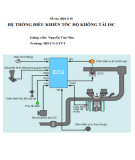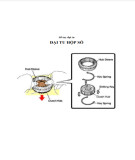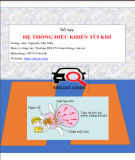Tài liệu Thư viện số
- Tài liệu Nội sinh (134)
- Khoa Kỹ thuật Công nghệ ô tô (1069)
- Khoa Kỹ thuật Công nghệ Cơ khí (1688)
- Khoa Kỹ thuật Công nghệ Điện - Điện tử (1890)
- Khoa Khoa học SHƯD (1877)
- Khoa Công nghệ thông tin (1720)
- Khoa SPKT & XHNV (1926)
- Khoa Lý luận chính trị (501)
- Khoa Kinh tế - Luật (2062)
- Khoa học cơ bản (875)
- Trung tâm Ngoại ngữ (254)
- Trung tâm GDTC-GDQP (133)
- Luận văn - Báo cáo (239)
- Tài liệu đào tạo nghề (104)
-
Tài liệu ngoại văn (162)
Danh mục TaiLieu.VN
- Mẫu Slide Powerpoint
- Kinh Doanh Marketing (39320)
- Kinh Tế - Quản Lý (30571)
- Biểu Mẫu - Văn Bản (123435)
- Tài Chính - Ngân Hàng (23744)
- Công Nghệ Thông Tin (56521)
- Tiếng Anh - Ngoại Ngữ (9738)
- Kỹ Thuật - Công Nghệ (44193)
- Khoa Học Tự Nhiên (27343)
- Khoa Học Xã Hội (43227)
- Luật - Kinh tế luật (6560)
- Văn Hoá - Thể thao - Du Lịch (71283)
- Y - Dược - Sức Khoẻ (83234)
- Nông - Lâm - Thuỷ sản (16418)
- Luận Văn - Báo Cáo (217024)
- Tài Liệu Phổ Thông (244133)
- Trắc Nghiệm Online (213578)
- Trắc Nghiệm MBTI
- Trắc Nghiệm Holland
Tài liệu nổi bật
Kết quả 1-12 trong khoảng 26
-
Material removal rate and electrode wear study on the EDM of silicon carbide
(BQ) This study was made only for the finish stages and has been carried out on the influence of five design factors: intensity supplied by the generator of the EDM machine (I), pulse time (ti), duty cycle (η), open-circuit voltage (U) and dielectric flushing pressure (P), over the two previously mentioned response variables. This has been done by means of the technique of design of experiments (DOE), which allows us to carry out the...
8 p vlute 28/04/2017 794 1
-
Evolutionary programming method for modeling the EDM parameters for roughness
(BQ) The method of electrical discharge machining (EDM), one of the processing methods based on non-traditional manufacturing procedures, is gaining increased popularity, since it does not require cutting tools and allows machining involving hard, brittle, thin and complex geometry
9 p vlute 28/04/2017 713 0
-
(BQ) Electrical discharge machining (EDM) is inherently a stochastic process. Predicting the output of such a process with reasonable accuracy is rather difficult.
19 p vlute 28/04/2017 688 1
-
(BQ) The present work is aimed at optimizing the surface roughness of die sinking electric discharge machining (EDM) by considering the simultaneous affect of various input parameters.
9 p vlute 28/04/2017 789 1
-
Intelligent process modeling and optimization of die-sinking electric discharge machining
(BQ) This paper reports an intelligent approach for process modeling and optimization of electric discharge machining (EDM). Physics based process modeling using finite element method (FEM) has been integrated with the soft computing techniques like artificial neural networks (ANN) and genetic algorithm (GA) to improve prediction accuracy of the model with less dependency on the experimental data.
13 p vlute 28/04/2017 691 1
-
(BQ) Surface integrity and dimensional accuracy remain critical concern in Electrical Discharge Machining (EDM). The current research work aims at investigating the influence of various EDM process parameters like pulse current (Ip), pulse-on time (Ton), tool work time (Tw) and tool lift time (Tup) on various aspects of surface integrity like white layer thickness (WLT), surface crack density (SCD) and surface roughness (SR). The dimensional...
13 p vlute 28/04/2017 853 1
-
Multi-attribute decision making for green electrical discharge machining
(BQ) This paper aims to develop a combination of Taguchi and fuzzy TOPSIS methods to solve multi-response parameter optimization problems in green manufacturing.
5 p vlute 28/04/2017 695 1
-
(BQ) In the study, temperature measurements have been made for Ti–6Al–4V workpieces with various duty factors to clarify the essential causes of difficulty in machining titanium alloys and observe the optimal duty factor in terms of productivity and quality.
7 p vlute 28/04/2017 684 1
-
(BQ) The paper describes the application of the fuzzy logic analysis coupled with Taguchi methods to optimise the precision and accuracy of the high-speed electrical discharge machining (EDM) process. A fuzzy logic system is used to investigate relationships between the machining precision and accuracy for determining the efficiency of each parameter design of the Taguchi dynamic experiments.
10 p vlute 28/04/2017 680 2
-
(BQ) The study sheds light on the powerful learning capability of ANFIS models and its superiority over the conventional polynomial models in terms of modelling complex non-linear machining processes
15 p vlute 28/04/2017 711 1
-
(BQ) In this paper, attempts have been made to model and optimize process parameters in Electro-Discharge Machining (EDM) of tungsten carbide-cobalt composite (Iso grade: K10) using cylindrical copper tool electrodes in planing machining mode based on statistical techniques.
6 p vlute 28/04/2017 675 1
-
0 The Optimization of the Electro-Discharge Machining Process Using Response
(BQ) In this paper, working current, working voltage, oil pressure, spark gap Pulse On Time and Pulse Off Time on Material Removal Rate (MRR) and Surface Finish (Ra) has been studied. Empirical models for MRR and Ra have been developed by conducting a designed experiment based on the Grey Relational Analysis. Genetic Algorithm (GA) based multi-objective optimization for maximization of MRR and minimization of Ra has been done by using the...
10 p vlute 28/04/2017 680 1
Đăng nhập
Bộ sưu tập số




















